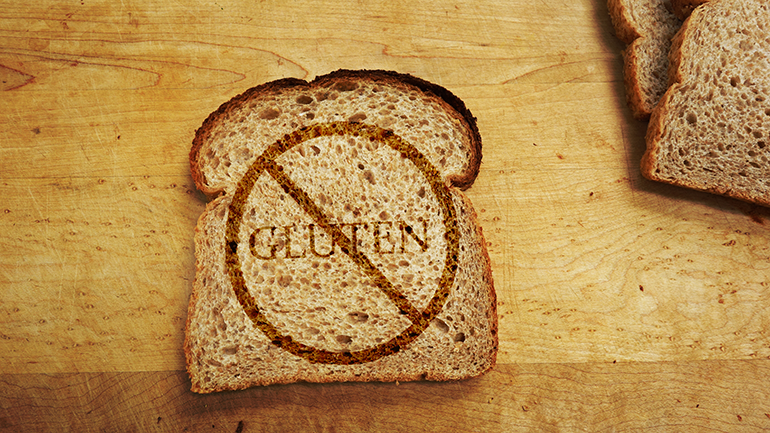
Our dietitians weigh in on gluten-free diets while pregnant or breastfeeding.
What is gluten?
Gluten is a protein found in wheat, barley, rye and triticale. While it can be obvious where gluten is found, such as in bread and pasta made with wheat, gluten can also be found in other, less obvious products, such as in candies, dressings, sauces, soups, malt products and chips.
Celiac disease
The gluten-free trend may be relatively recent, but people with celiac disease have long had to follow a gluten-free diet. When people with celiac disease eat anything containing gluten, their intestines suffer damage, which makes it difficult for their body to absorb the nutrients necessary for health. One in 133 Canadians are diagnosed with celiac disease and must follow a strict gluten-free diet for their whole lives, otherwise it can cause serious health conditions such as malnutrition, infertility and bone disease.
Gluten-free and pregnant - now what?
Pregnancy is a time when you want to make sure that you and your baby are getting all of the recommended nutrients. For pregnant women who have already been diagnosed with celiac disease, continuing to follow the advice of your health care providers along with a gluten-free diet is critical to a healthy pregnancy. For those who have decided to go on a gluten-free diet and have not been diagnosed with celiac disease, it would be wise to talk to a dietitian to make sure you are getting all the nutrients you need.
Gluten-free products are frequently made from four major starches and flours: white rice flour, tapioca starch, corn starch and potato starch. These four gluten-free alternatives are usually lower in iron, B vitamins, and folic acid. Talk to a dietitian about taking a supplement to get these vitamins and minerals.
Health Canada recommends all women who are pregnant and lactating eat 6 - 7 servings of grain products, and at least half of those should be whole grains which are higher in fibre. Fibre helps prevent constipation in pregnancy. So if you're avoiding gluten, choose high fibre foods like legumes, vegetables, fruit, and gluten-free whole grains such as quinoa, amaranth, flax, buckwheat, millet and teff. Good news is these whole grains are becoming more widely available and are much higher in nutrients and fibre.
What about breastfeeding?
If you have decided to breastfeed your baby, it is important for you to get adequate vitamins and minerals so that your baby will get what they need from your breast milk. Talk to a dietitian, especially if you plan to have your baby on a gluten-free diet once he or she is ready to start solids. An infant’s growth and development is greatly influenced by diet.
Speak with a dietitian
Instead of sorting through the maze of products on your own, a dietitian can help you choose the foods that will give you the nutrients you need during pregnancy and while breastfeeding. A dietitian can suggest nutritious and affordable options, as well as help you read labels to look for healthy options. They may also assist with adding nutrient supplements to your diet, should you need it.
For free, professional advice from a registered dietitian, call 8-1-1 for HealthLink BC services, or ask your doctor for a referral to a dietitian.
You may consider hiring a dietitian from www.dietitians.ca which may be covered under your extended health care plan.
